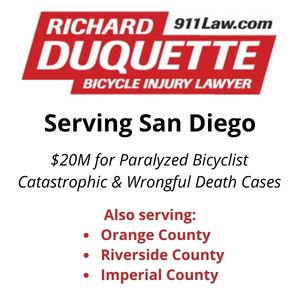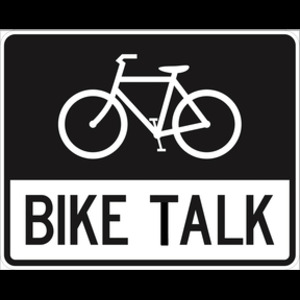The news hit like a bombshell Wednesday night.
After years of ignoring the problem, the Los Angeles press discovered the city’s hit-and-run epidemic when the LA Weekly unveiled an extensive examination of what may be the city’s most common crime.
The article, by writer Simone Wilson, cites the shocking news that 48% of all L.A. collisions are hit-and-runs. Or at least, shocking to anyone who hasn’t been fighting to call attention to the problem, and trying desperately to get city officials to actually do something about it.
Although to be fair, in the meetings I’ve attended, LAPD has consistently said that roughly 33% percent of all collisions are hit-and-runs, based on COMPSTAT data. And unfortunately, the Weekly doesn’t explain where they got the higher figure.
But either way, it’s too damn high.
I won’t recap the article here. If you want the short version, you can get it from LA Streetsblog or The Atlantic Cities; if there’s any justice at all, it will soon be picked up by the larger mainstream press.
Or better yet, click the link in the second paragraph and read the full article yourself. And try to retain the contents of your stomach when you do.
The question is what can we do about it.
Most of the efforts by advocates working to do something about the problem have focused on addressing it after the fact.
Like raising the profile of the crime to put it on equal footing with other violent crimes. And increasing the number of officers assigned to investigate hit-and-run collisions — particularly those involving serious injury. Which won’t be easy given that the department is desperately trying to avoid further budget and staffing cutbacks.
Meanwhile, others, such as the recent Life Before License campaign, have focused on ensuring that drivers who aren’t willing to observe the most basic requirement to remain at the scene of a collision will have their driver’s licenses suspended — something that has failed to happen in a shocking number of cases.
Which sends a clear message just how seriously our courts don’t take traffic crimes.
All of these efforts are important, and deserve our support.
On the other hand, I’d rather stop hit-and-runs before they occur by changing state law to remove the incentive to flee. And making the cost for running away so steep that no one in his or her right mind would think it’s worth the risk.
Long-time readers may recall that I’ve advocated a three-point plan to do just that. And recently added a fourth to address the heartless bastards who leave their victims to die on the street.
1. One of the most common reasons people take off following a collision is that they’ve been drinking or are otherwise under the influence of something. Yet current state law actually encourages drivers to flee by making the penalty for hit-and-run less onerous than the penalty for DUI. So we should start by removing that incentive, as Colorado did at the urging of cyclists, by making the penalties for hit-and-run equal to the penalties for DUI.
However, given California’s current prison overcrowding, it’s highly unlikely that anyone convicted under a toughened law would serve their full sentence. So I suggest we take it further.
2. Anyone who leaves the scene of a collision should have their license automatically revoked — not suspended — by the DMV. By committing the crime of hit-and-run, they’ve shown a callous indifference to both the law and the lives and safety of others, and are undeserving of the privilege of driving. By making this an administrative action, it can be taken regardless of whether the driver is ever charged or convicted. The driver would have to go before an administrative judge to request the right to apply for a new license — and should face a higher standard to get it.
3. Hit-and-run is the only crime where the criminal is allowed to keep the weapon he or she used, even after a conviction; after all, bank robbers aren’t given back the gun they used. Any car used to commit a hit-and-run should be impounded as evidence until a decision is made on whether to file charges or until the trial is concluded. If the driver is convicted, the vehicle should be seized by the state and sold, with the proceeds going to the victim. After all, the state can already seize cars used in drug crimes or to solicit prostitutes; isn’t running away after killing or injuring another human being just a little more serious than trolling for a blowjob?
And I guarantee people will think twice about running away if they have to continue making payments on a car they don’t own anymore.
As I mentioned, I’ve recently added a fourth item to this list, after one too many cases in which a hit-and-run driver has left their victim to die on the streets — yet authorities can’t manage to find anything to charge the driver with that’s in any way commensurate to crime.
4. The greatest tragedy in any fatal hit-and-run is that in many cases, the victim might have been saved with prompt emergency care. But instead of calling for help, the drivers run off, leaving their victims to suffer and die alone, when they might otherwise have been saved. So prosecutors should be encouraged — if not required — to file unpremeditated degree murder charges in any case where there’s even the slightest possibility the victim might have survived if they’d gotten help.
It’s a tough approach. And quite frankly, despite discussions with a few state legislators, I’ve yet to find one willing to take up the fight.
They’d rather pretend the problem doesn’t exist. Or that nothing can be done about it, while countless cyclists, pedestrians and motorists continue to bleed.
Or die.
Then there’s one other element that should be considered.
Every police officer with whom I’ve discussed the problem of hit-and-run, without exception, has said there are two primary reason drivers flee. First, because they may be intoxicated, or second, because the drivers may be undocumented, with no license or insurance.
Of course, there’s also a third, somewhat smaller category. Some people are just gutless assholes who refuse to take responsibility for their actions.
But until we allow all residents of the state — whether or not they are here legally — to apply for a license and buy the insurance required by law for all drivers, we will continue to give them a reason to run away.
It doesn’t mean we are legitimizing their status; the state does not have the power to do that.
It just means that we recognize the problem.
And it’s long past time we did something about it.
Update: Since this piece was written, California has approved driver’s licenses for people in the country without valid documentation.
So that’s one down, four to go.





